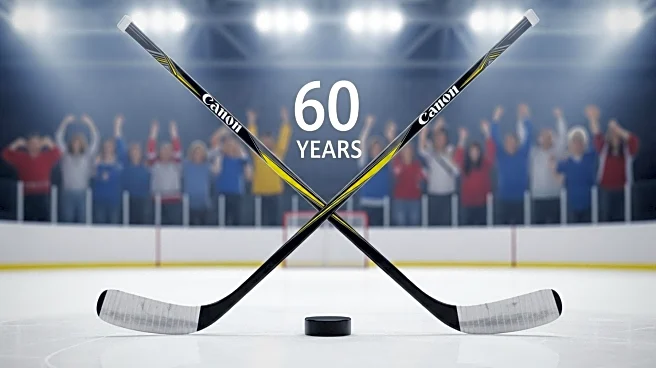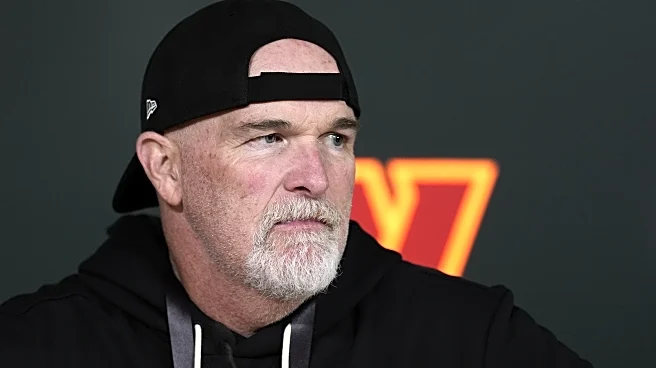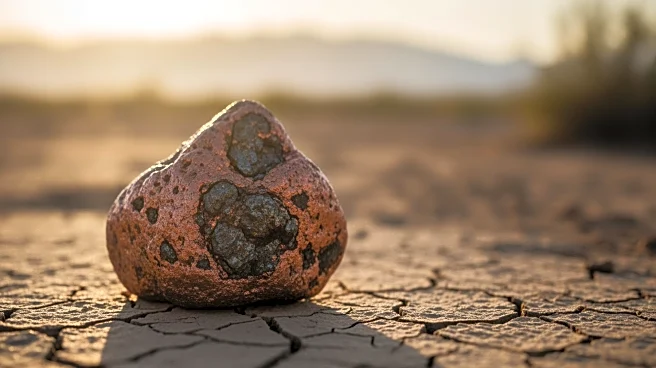What's Happening?
The Solihull Barons, an ice hockey club established in 1965, are celebrating their 60th anniversary. Despite financial challenges and the formation of rival clubs, the Barons have persisted due to the dedication of their fans and volunteers. The club, originally descended from the Birmingham Barons, has seen significant changes over the years, including the creation of the Coventry Blaze and Telford Tigers. Volunteers like John Butler and John Freeman have played crucial roles in sustaining the club, contributing to sponsorship, travel, and match timekeeping. The Barons have been a community hub, drawing large crowds and fostering a family-like atmosphere among supporters.
Why It's Important?
The longevity of the Solihull Barons highlights the importance of community support in sustaining minority sports. The club's survival through financial hardships underscores the role of local engagement in preserving cultural and recreational activities. The Barons' history reflects broader trends in sports management, where community involvement can counterbalance economic pressures. The club's ability to maintain operations for six decades demonstrates the potential for grassroots sports to thrive despite limited resources, offering insights into the resilience of community-driven initiatives.
What's Next?
Looking ahead, the Solihull Barons face ongoing challenges related to financial sustainability and operational costs. The club's future depends on continued community support and strategic management to navigate economic pressures. As the rivalry with Telford Tigers resumes, there may be opportunities to boost local interest and attendance. The club's leadership is exploring options to enhance facilities and expand their reach, although financial constraints remain a significant hurdle. The Barons' ability to adapt and innovate will be crucial in ensuring their continued presence in the ice hockey landscape.
Beyond the Headlines
The story of the Solihull Barons offers insights into the cultural significance of sports as a community bonding tool. The club's history illustrates how sports can foster local identity and pride, creating lasting connections among residents. The Barons' journey also raises questions about the sustainability of minority sports in the face of commercial pressures, highlighting the need for policies that support grassroots initiatives. The club's experience may inspire other communities to invest in local sports as a means of enhancing social cohesion and cultural heritage.










